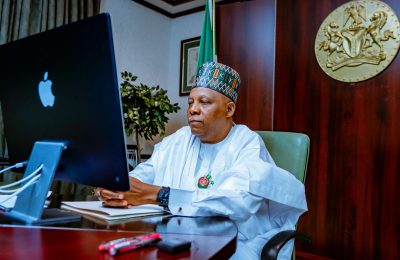The adage, “All work and no play makes Jack a dull boy,” acknowledges the importance of play in a child’s development as it contributes to their physical, emotional, and cognitive maturation. It’s also a good way for parents and caregivers to bond with their children.
Whether playing football with friends, hide-and-seek, or house, everyone knows play when they see it. Irrespective of economic background or culture, people worldwide engage in play in one form or another.
It is not just fun and life-changing. Despite its many benefits, not everyone understands play is a biological imperative for every child. In fact, statistics show that the amount of time children get to play has been declining for decades.

Changes in family structure, fewer safe venues for play, more media use and screen time, and rigidly structured family and school schedules that sacrifice playtime or unstructured free play for children are some of the causes.
The deprivation of play opportunities comes in different forms for the Nigerian child depending on the family’s social setting or status, but the effect is much the same.
Because of the difficult economic times, a lot of families turn to enlisting their children in commercial activities—particularly hawking—earlier than they should to increase family income at a time when the children should be relaxing after school.
When parents are fixated on creating a strict schedule for their children’s future or set rigid academic requirements for them too early, time can be just as tight for well-off children as it is for their busy parents.

According to research, children between the ages of three and twelve spend, on average, nine hours a day and forty-five hours a week travelling to and from school, plus extra time for homework and household chores. In contrast, children in industrialised nations spend roughly half that time travelling and having more free time.
Now, as a reminder of the power of play for both children and caregivers, the United Nations has designated June 11 of the year to celebrate the International Day of Play around the world. It also entails acknowledging the children’s right to play as guaranteed by the international convention on the rights of the child.
Dr Yetunde Adeniyi, a consultant physiatrist at the University College Hospital, responding, said that play is very essential for brain growth, and the reason why, in the first five years of life, what is advised is that children are just meant to be playing even when they’re in the classroom or school.
She stated that play is any leisure activity that guarantees the use of all five senses, as well as all of the muscles and body parts.
According to her, the ideal setting should facilitate exploration for kids instead of focusing just on learning alphabets, numbers, and other basic skills. Playing is their natural state and is crucial for their growth and brain networking.
“They need to be able to touch, feel, and smell the environment as they play outside. Play with sand and other objects in their surroundings, you know. Even at the age of four or five, play is meant to be the primary means of learning.
“For example, there are a plethora of engaging ways to teach the alphabet to kids that don’t entail them just sitting there and not participating. Therefore, they must be engaged, actively participate, run around, comprehend boundaries, be able to relate to their peers, be able to exchange things, and so on. That’s what it entails.”
Dr Adeniyi declared that it is important that parents stop putting pressure on schools for academic excellence while this continues to encroach on childhood leisure time needed to achieve an all-round childhood development.
“Parents must realise that play is critical to a child’s brain development during the first five years of life. And the best way to help the brain to develop is through play,” she stated.
Also, Dr Adeniyi said schools, because of competitions on who retains children more in school, shouldn’t plan school schedules at the expense of recess or free child-centred play.
She added, “But parents will also need to take it more slowly when they want their children to learn only the fundamentals and not the other facets of their senses.”
The Paediatric Association of Nigeria encourages play as a means of promoting children’s health and development. As a result, playrooms with lots of toys and other amenities are always made in children’s hospitals and wards.
Dr Oladele Olatunya, a paediatrician at the Ekiti State University Teaching Hospital, Ado Ekiti, stated that play is recommended because it helps to boost the cognitive and psychosocial state of children.
Furthermore, he mentioned that in addition to helping kids get better quickly from illnesses, play may be used as a kind of therapy for ailments, including autism and chronic pain.
Autism-related children typically keep to themselves and don’t want to socialise. Thus, playing with coworkers is a component of the treatment. Play is also recommended for children having chronic pain, such as those with sickle cell disease. It can divert their attention from their discomfort,’ he said.
Play helps enhance children’s capacity for organisation, planning, socialisation, and emotional control, according to research. Play also improves social skills, language, math, and even helps kids manage stress. The saying “all work and no play” does in fact “make Jack a dull boy.”
ALSO READ: What you should know about recent cholera outbreak in Nigeria







